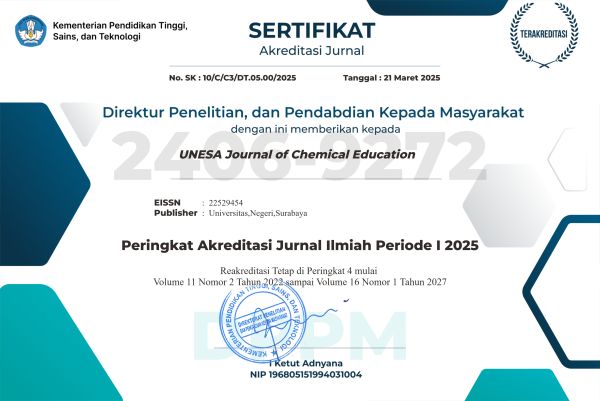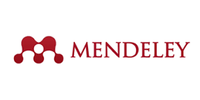Publication Ethic
THE SUBMISSION SYSTEM
Electronic submission usually include standard communication to authors, reviewers and other editors. Journals should review them to ensure that they reflect current practices are consistent with the instruction to authors and are clear.
DUTIES OF PEOPLE IN THE JOURNAL
A. Editorial Team
1) Editors in Chief and Vice Editors
The editors in chief will be expected to work with a team of co-editor (vice editor). The submmission system, editors may wish to provide a checklict of what is expected from authors to maintain standards of manuscripts. Action of editors are: (i) Editors are responsible for everything published in journal. they should therefore take all reasonable steps to ensure the quality of materials; (ii) Editors make desicions to accept or reject a paper for publicationshould be based only on the paper's importance, orignality and clarity, and the study's relevence to the remit of the journal; (iii) Not with standing the economic and political realities of journal, editors should select submissions on the basis of their quality and suitability for readers rather than for immediate financial, political, or personal gain
2) Advisory Editorial Board
Adisory editorial board are experts team who determine the journal's field. Action of advisory editorial board are: (i) Give advise on journal focus and scope; (ii) Promote the journal to their colleagues and peers; (iii) Assist decision making of editor over issues such as plagiarism claims and submissions where reviewers can’t agree on a decision.
3) Managing Editor
A well managed infrastructure is essential to a journal's success. Process for handling submissions that are most efficient and appropriate for the journal which through OJS (open journal system). Managing Editor is uploading review report and publishing article through OJS.
B. Reviewer
Reviews should be conducted objectively. The duty of confidentiality in the assessment of a manuscript must be maintained by expert reviewers. Actions of reviewers are: (i) This extends to reviewers' colleagues who may be asked (with editor's permission) to give opinions on specific sections; (ii) The reviewers should not make any use the data, arguments, or interpretations, unless they have the authors' permission; (iii) Reviewers should provide speedy, accurate, courteous, unbiased and justifiable reports; (iv) Reviewers should express their views clearly with supporting arguments and references as necessary and not be defamatory or libellous; (v) Reviewers sholud respect the confidentially of material supplied to them and may not discuss unpublished manuscript with colleagues or use the information in their own work.
C. Authors
Authors take public responsibility for the content of their paper. The multtidisiplinary nature of much research can make this difficult, but can resolved by the disclosure of individual contribution. Authors avoid to suspected misconduct such as plagiarism (high percentage of similarity) or data fabrication. Suggestions fom authors as to who might act as reviewers are often usefull.
TRANSPERENCY
Electronic submission system can be designed to ensure author provide all required infrormation. it may be helpful to require that all elements are complete before a manuscript will be sent for peer review.
PLAGIARISM
Plagiarism ranges from the unreferenced use of others' published and unpublished ideas, including research grant applications to submission under "new" authorship of a complete paper, sometimes in a different language. It may occur at any stage of planning, reasearch, writing, or publication. it applies to print and electronic version. Action to avoid plagiarism: All sources should be disclosed and if large amounts of other peoples's written or illustrative material is to be used, permission must be sought. UNESA Journal of Chemical Education Board will ensure that every published article will not exceed 25% similarity Score. Plagiarism screening will be conducted by UJCEd Editorial Board using Turnitin Plagiarism Checker (https://www.turnitin.com/).
CONFLICT OF INTEREST
Conflict of Interest comprise those which may not be fully apparent and which may influence the judgement of author, reviewers, and editors. They have been described as those which, when revealed later, would make reasonable reader feel misled or deceived. They may be personal, commercial, political, academic or financial. Authors must disclose financial resources which support their research.
REDUNDANT PUBLICATION
Redundant publication occurs when two or more papers, without full cross reference, share the same hypothesis, data, discussion points, or conclusions. Action to avoid redundant publication are: (i) Published studies do not need to be repeated unless further confirmation is requirprevious publication of an abstract during the proceedings of meetings does not preclude subsequent submission for publication, but full disclosure should be made at the time of submission; (ii) Re-publication of a paper in another language is acceptable, provided that there is full and prominent disclosure of its original source at the time of submission.
ARTICLES IN PRESS
Article in press contains the articles have been all reviewed properly according to the UNESA Journal of Chemical Education (UJCEd) and policies. All articles are accepted to be published in the upcoming issues. However, the articles have no particular publication date yet, until they are officially published on the website in a complete issue or volume. Articles in Press that include errors, or are discovered to be accidental duplicates of other published article(s), or are determined to violate UJCEd publishing ethics guidelines in the view of the editors (such as multiple submission, bogus claims of authorship, plagiarism, fraudulent use of data or the like), may be “Withdrawn” from UJCEd. Withdrawn means that the article content (HTML and PDF) is removed and replaced with a HTML page and PDF simply stating that the article has been withdrawn according to the UJCEd Policy on Article in Press. Withdrawal with a link to the current policy document. Articles that are "withdrawn" in Articles in Press will not be published in UJCEd
INTERNAL POLICY
Editors, Peer-reviewers, and Proofreaders of UJCEd are permitted to submit an article in this journal with the following conditions are: (i) Editors and Peer-reviewers of UJCEd who submit an article to this journal will be released temporarily from the editorial processes (especially in their manuscript) starting from the time of submitting the article. This policy goes into the publication decision of the article (received without revision, received with minor revision, received with major revision, or rejected) at least 1 issue/number; (ii) Editors and Peer-reviewers of UJCEd who submit an article are not allowed to intervene in the editorial process on editions/numbers when the article is sent to UJCEd; (iii) Any editorial process will be performed by other Editors, Peer-reviewers so that the process continues without any problems; (iv) There is no special treatment for Editors and Peer-reviewers of UJCEd who submit an article to UJCEd.












